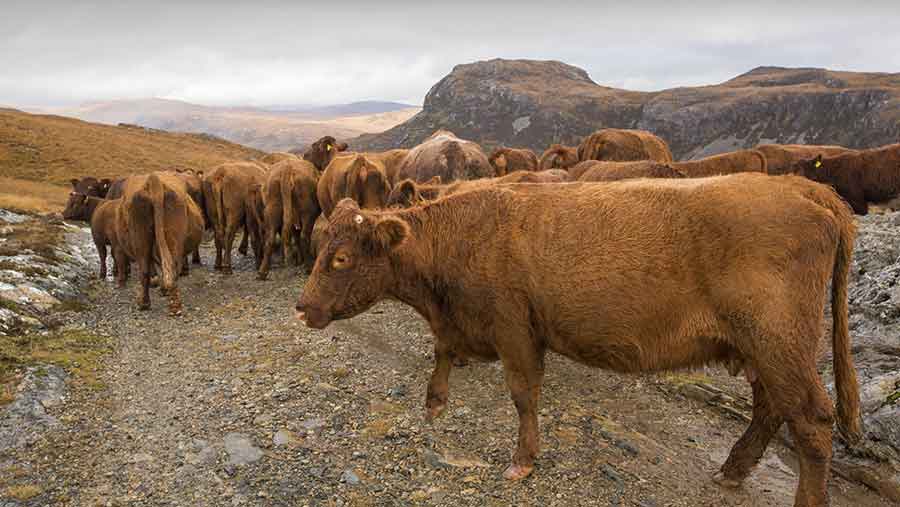Scotland to get new BVD ‘positive’ status
 © Global Warming Images/REX/Shutterstock
© Global Warming Images/REX/Shutterstock A new “positive” status is being introduced in Scotland to make the Bovine Viral Diarrhoea (BVD) eradication programme easier to understand for farmers.
The Scottish government is adding the new status on 10 April to highlight herds that pose a higher BVD risk for those purchasing or moving cattle than “not-negative” and “negative” herds.
The new status will only apply to herds that are likely to have a live persistently infected (PI) animal. Once this animal has been removed the herd will revert back to the current “not-negative” status.
See also: Cumbria farmers challenged to be first county to oust BVD
Rural secretary Fergus Ewing said: “Controlling the disease is centred on the identification of persistently infected animals and the timely removal of these animals from the herd.
Removing ambiguity
“Such control measures are estimated to save the industry between £50-80m over a 10-year period.”
The BVD eradication programme – which focuses on identifying and removing PI animals from herds – is now in its fourth year in Scotland.
The NFU has welcomed the changes saying it hoped it would make farmers think twice before holding on to a PI animal.
Penny Johnston, animal health and welfare policy manager for NFU Scotland, commented: “Whilst this doesn’t actually introduce any additional controls for those herds now designated as BVD positive, it is an important step in recognising that any herd which retains a live PI status is known to have BVD so must be considered a positive herd and cannot hide behind a more ambiguous ‘not-negative’ status.”
The BVD advisory group will be meeting later this month to look at what new sanctions and controls are needed to tighten some of the gaps in the current programme and help Scotland move closer to eradicating the disease.
Symptoms of BVD
Non-pregnant animals
- More susceptible to other diseases and harder to get in calf
Calves
- More susceptible to other diseases and more likely to see more cases of pneumonia and scours
Pregnant cow
- Can reabsorb calf/abort
- Deformed calves
- Production of PI calves (if infected in first 120 days of pregnancy)
Persistently Infected (PI) Calf
- The persistent infection comes about because of infection of the calf in the womb during the first 120 days of pregnancy
- Infective for whole of lifetime
- In most cases never really grows and is always a poor doer
- Likely to die before 18 months old
- There are some exceptions where calves may do OK and these are the dangerous ones as they are infecting other animals
